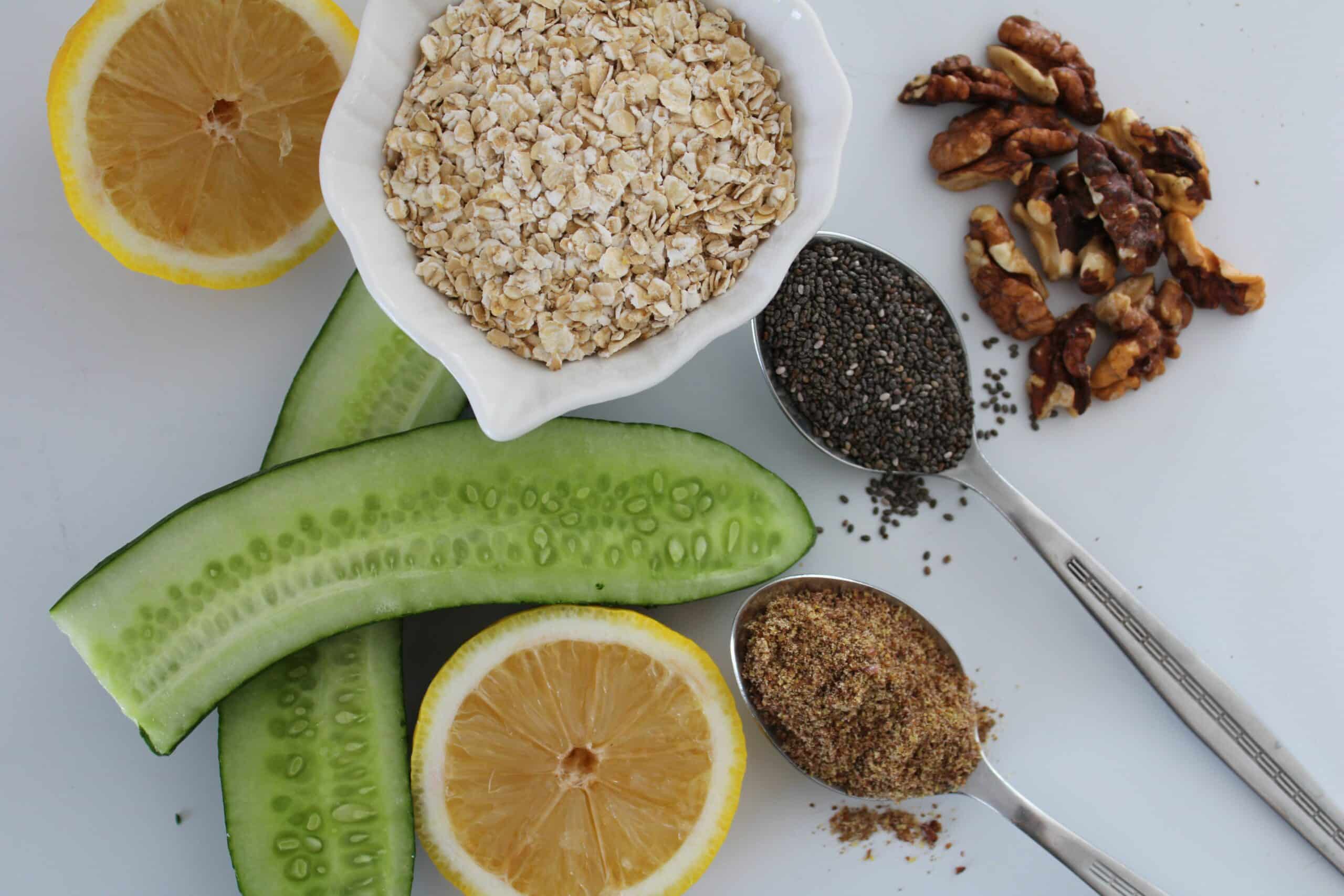Do you have a green thumb? If so, you’ll be thrilled to hear about the lemon cucumber. It’s a type of cucumber that’s easy to grow and care for, making it perfect for beginner gardeners and experienced horticulturists alike. With just a bit of effort, you can reap the rewards of growing this interesting vegetable in your own garden.
Cucumbers are often thought of as a summer crop, but lemon cucumbers can be grown year-round with the right amount of attention and care. They require minimal maintenance and are highly tolerant to pests and diseases, which makes them an ideal choice for any garden. The unique flavor of these cucumbers will add a zest to your meal; they have a light lemony flavor that is both sweet and tangy.
If you’re looking for an easy way to add some variety to your home garden, look no further than lemon cucumbers! With their hardy nature and delicious taste, they can truly take your cooking up a notch by introducing something new into your diet. In this article we’ll discuss how to grow and care for lemon cucumbers so that you can enjoy all the benefits of growing them in your own backyard!
Selecting A Site For Planting Lemon Cucumbers
Planting Lemon Cucumbers is like embarking on a journey. It begins with a spark of curiosity, and the desire to create something that can be enjoyed for years to come. With careful consideration and preparation, this journey towards growing Lemon Cucumbers can be a rewarding one.
Finding the perfect spot to plant Lemon Cucumbers is key to their success. The most important factor when selecting a site is sunlight, as these cucumbers require at least six hours of full sun per day. The soil should also be well-draining and have a pH between 6 and 7.5; if necessary, you can add some lime or sulfur to adjust the pH level. Additionally, make sure the area doesn’t have any standing water or pools of moisture after rainstorms – this could cause root rot in your plants.
Finally, it’s best to choose an area with plenty of space for your Lemon Cucumber plants to spread out; planting them closer than 2 feet apart can lead to overcrowding and reduce yields. By taking the time to find the right spot for your garden, you’ll be setting yourself up for success when it comes time to start planting!
Preparing The Soil For Planting
Preparing the soil for planting lemon cucumbers is just as important as selecting an appropriate site. After all, it’s where the plant will grow and develop its roots. Taking steps to ensure the soil is well-prepped will help maximize yields and ensure a healthy harvest.
To start with, it’s important to test the pH of the soil – ideally, it should be in the range of 6.0 to 7.0. If needed, add lime or sulfur to adjust the pH accordingly. Additionally, mix in some compost or other organic matter such as manure to nourish and improve the structure of the soil. This will provide a better environment for root growth and increase water retention too.
Finally, once your soil is prepped, you can begin planting your lemon cucumber seeds or seedlings. Be sure that there are adequate drainage holes at the bottom of your containers for excess water to escape from – otherwise you risk overwatering and root rot occurring in your plants! With these considerations taken into account, you’ll have a great foundation from which lemon cucumbers can thrive and flourish in their new home.
Planting Lemon Cucumbers
Planting lemon cucumbers is an exciting part of the process and can be done in several different ways, depending on the climate and soil type. For those in cooler climates, planting lemon cucumbers directly in the soil is usually the best option. To get started, prepare a planting area with soil that is well-drained and contains plenty of organic matter. This will provide the necessary nutrients to help your lemon cucumber plants thrive.
For those with warmer climates, starting your lemon cucumber plants indoors before transplanting them outside can be beneficial for getting a jump start on the season. In this scenario, use containers filled with nutrient-rich potting mix and place them in a warm, sunny spot indoors. Once the seedlings have grown more substantial roots and are ready to be transplanted outdoors, make sure to give them adequate water and fertilizer while they adjust to their new environment.
Planting lemon cucumbers doesn’t have to be complicated or intimidating; with some preparation and care you’ll soon have a healthy crop! The next step is learning how to properly care for them so they’ll produce plenty of delicious fruits throughout the season.
Caring For Lemon Cucumbers
Caring for lemon cucumbers means providing the right environment for your plants to thrive. With some attention, you can ensure that these delicious vegetables will be of the highest quality.
First, lemon cucumbers need plenty of light and warmth. Plant them in a location that receives at least six hours of direct sunlight each day and make sure they are not exposed to harsh winds or cold temperatures. Furthermore, they should be kept away from other plants that may spread diseases or insects.
Second, mulching is important for keeping the soil moist and reducing weeds. Use organic materials such as straw, grass clippings, or compost to create a layer around the plant’s roots. This will help retain moisture and provide essential nutrients to keep your cucumbers healthy. Finally, regular pruning will help encourage new growth and keep your plants productive.
By following these simple steps, you can keep your lemon cucumber plants in top condition and enjoy their sweet flavor all season long! Now that you have an understanding of how to care for these plants, it’s time to learn about watering them properly…
Watering Lemon Cucumbers
Watering your lemon cucumbers is a critical part of their care. While they are relatively low-maintenance, the plants need regular irrigation to remain healthy and productive. Knowing how much and how often to water your lemon cucumber plants is key in getting the most out of them.
When it comes to watering, consistency is essential. Your lemon cucumber plants need an even amount of moisture throughout the growing season. You can check on the soil’s moisture level by sticking a finger or trowel into the ground near the plant. If it feels moist, you don’t need to water; otherwise, give your plants a drink! It’s best to use a soaker hose or drip irrigation system for applying water since this helps avoid overwatering and allows for more even distribution of moisture over time.
In hot weather, you may need to water your lemon cucumbers every day or even twice a day to supplement natural rainfall and keep the soil moist. In cooler temperatures, less frequent watering will do just fine – about once every couple of days should be enough for these hardy plants! Make sure not to forget about them though; too little water can cause stunted growth and poor yields just as much as too much can! With regular watering, your lemon cucumbers will stay healthy and happy all season long.
The next step in taking care of your lemon cucumbers is fertilization. This will ensure they get all the nutrients they need to thrive…
Fertilizing Lemon Cucumbers
Fertilizing lemon cucumbers is a great way to ensure they receive the nutrients they need to stay healthy and productive. It’s important to follow a regular fertilizing schedule throughout the growing season, as this will help your plants reach their full potential. Here are some tips to help you get started:
Choose an organic fertilizer with a balanced nutrient ratio, such as 10-10-10 or 8-8-8. This will provide your plants with the essential minerals they need for growth and development.
Apply the fertilizer around the base of the plant, making sure not to get any on the leaves or stems. This will prevent burning or other damage from occurring on the plant.
Follow label instructions closely when it comes to dosage and timing of applications. Generally speaking, it’s best to fertilize once every two weeks during the growing season.
Make sure you water your lemon cucumber plants after applying fertilizer, as this will help it reach down into the root zone where it can be absorbed by the roots more easily.
By following these simple steps, you can ensure that your lemon cucumbers get all of the nutrition they need to thrive and produce delicious fruit for you to enjoy! Proper fertilization also helps keep pests and diseases at bay, which we’ll talk more about in our next section.
Controlling Pests And Diseases
Growing lemon cucumbers can be a rewarding experience. From soil prep to fertilizing and harvesting, there are many steps involved in ensuring a successful crop. Controlling pests and diseases is another critical step that requires careful attention to keep your cucumbers healthy and safe for eating. Here are a few tips to help you stay ahead of the game:
• Monitor your plants regularly for signs of pests or diseases—such as discoloration, wilting, or unusual growth patterns—and act quickly to address any issues. • Keep your garden clean and free of debris, which can attract insects and other pests. • Rotate crops each season so that the same type of plant isn’t grown in the same spot year after year, as this can increase the risk of disease and infection. • Use natural methods such as companion planting and mulching to keep pests away from your cucumber plants.
From monitoring for potential problems to rotating crops, taking preventive measures is essential for protecting your lemon cucumbers from damage caused by pests and disease. By following these tips, you’ll be able to enjoy a bountiful harvest that’s free from harmful critters! Now it’s time to turn our attention toward harvesting our cucumbers when they reach their peak ripeness.
Harvesting Lemon Cucumbers
Harvesting lemon cucumbers can be an exciting event for the home gardener. While it may take up to 90 days from planting to harvesting, the average lemon cucumber is ready in around 70 days – so you won’t have to wait too long! Here are three tips to help you get the most out of your harvest:
First, check that the cucumbers have reached their full size before picking them. A ripe lemon cucumber should be 6-7 inches long and a vibrant yellow color. You’ll also want to look for an orange/yellow hue on the blossom end, which indicates maturity.
Second, pick cucumbers early in the morning when they’re at their juiciest and tastiest. The earlier you can pick them, the fresher they will be and the better they’ll taste in salads or as a snack. Finally, try not to over-harvest. These cucumbers are relatively small, so it’s best to leave some of them on the vine so they can continue maturing until you’re ready for another harvest.
With these tips in mind, you should have no trouble reaping a bounty of delicious lemon cucumbers from your garden every season! Now all that’s left is finding ways to store them properly, which we’ll discuss next…
Storing Lemon Cucumbers
It’s ironic that something as sweet and delicious as a lemon cucumber requires so much effort to store properly. After all the hard work of planting, growing and harvesting these unique fruits, it would be a shame if they didn’t make it to the table! Fortunately, with some simple steps, you can ensure your lemon cucumbers remain as fresh and tasty as when they were picked.
First of all, if you want your cucumbers to last more than a few days, you’ll need to keep them out of direct sunlight. Place them in a cool area with good air circulation; this will help prevent them from spoiling too quickly. It’s also best to store them in an uncovered container or basket; this will allow any moisture on the cucumbers to evaporate. Once you’ve done that, make sure the cucumbers are completely dry before putting them away.
Finally, for longer-term storage, wrap each cucumber individually in newspaper or cloths and place in an airtight container or bag. This will help keep out moisture and keep the cucumbers from getting moldy or soft over time. With these easy steps, you can enjoy your delicious lemon cucumbers for weeks after they’ve been harvested! Now that we have stored our lemon cucumbers properly, let’s look at troubleshooting common problems with their cultivation.
Troubleshooting Common Problems
Troubleshooting common problems with lemon cucumbers is a daunting task, but one that can be conquered. It’s like the moment when a brave knight faces off against a fire-breathing dragon—there may be fear and uncertainty, but with persistence and courage, success can be achieved!
The first step in troubleshooting any issues with your lemon cucumbers is to identify what the problem is. Is your plant wilting or losing its leaves? Are there spots on the leaves? Is the soil too dry or too wet? Once you have determined the cause of the problem, you can then take steps to address it.
For example, if you find that your lemon cucumber plants are not getting enough water, then you need to adjust your watering routine. Make sure to water deeply so that the roots get plenty of moisture and check for proper drainage so that water does not pool around the base of the plant. If pests are causing damage to your plants, use an organic insecticide as a first line of defense.
By following these guidelines and taking action when necessary, you can help ensure that your lemon cucumber plants stay healthy and productive for many harvests to come! Now let’s move on to propagating these unique veggies so we can enjoy them for years down the road.
Propagating Lemon Cucumbers
Propagating lemon cucumbers is a great way to grow more plants and increase your harvest. If you have an existing lemon cucumber plant, it’s easy to propagate. All you need is a healthy stem and the right environment for growth. To begin, cut off a healthy stem from your existing plant and place it in water or moist soil. Over time, roots will form and the stem can be transplanted into its own pot or garden bed.
When propagating lemon cucumbers, make sure to provide plenty of sunlight and water. The temperature should also remain consistent; too high or too low temperatures can prevent growth. Additionally, add plenty of organic mulch around the stem to promote root growth and protect it from weeds or disease-carrying insects. It’s also important to rotate the plant every few weeks so all areas get equal exposure to light and nutrients.
Once your new lemon cucumber plants are established, they will require regular maintenance like fertilizing and pruning. Pruning helps control the size of the plant while fertilizing keeps it strong and healthy so it can continue producing delicious fruit throughout the season! With proper care, you’ll soon have several thriving lemon cucumber plants that will produce an abundance of fruit each year!
By following these steps, you’ll be well on your way to successfully propagating lemon cucumbers. Now let’s explore companion planting for these vibrant vegetables – another great way to maximize your harvest!
Companion Planting For Lemon Cucumbers
Coincidentally, the last section was about propagating lemon cucumbers – and this one is too, but in a different way. Companion planting can be a great help to growing lemon cucumbers, letting them thrive and produce more vegetables. It’s all about understanding what other plants are best suited to being grown near your cucumber plants.
This time, we’re focusing on companion planting for lemon cucumbers specifically. There are certain plants that do particularly well with these unique fruit-veggies, providing the extra nutrients and support they need to grow bigger and better. Tomatoes, peppers, beans, onions and garlic are all good companions for lemon cucumbers, so consider incorporating those into your garden setup.
These companion plants can also act as natural pest repellents for your lemon cucumbers, helping protect them from pesky insects that could otherwise damage or destroy your crop. It’s important to understand how each plant interacts with the others in order to get the most out of companion planting with your lemon cucumber beds. With a bit of research and some trial-and-error experimentation you’ll be able to get the perfect combination of veggies in no time!
Growing Lemon Cucumbers In Containers
Growing lemon cucumbers in containers can be as rewarding as planting them in the ground. It’s like having a miniature garden in your own backyard, full of the sweet and tart flavor of these special vegetables! Here are three tips that will help you get started:
Choose a large container – Lemon cucumbers need plenty of space, so it’s important to pick a container that’s big enough for them to spread out and grow.
Plant your seeds near the top of the soil – The soil should be loose and easy to work with, so it’s best to plant near the top rather than burying them below. This ensures they have access to adequate sunlight.
Water regularly – Lemon cucumbers need regular watering to ensure that their roots stay hydrated and healthy. Check on them every couple days to make sure they are getting enough moisture.
If you follow these steps, you should have no trouble creating a thriving lemon cucumber container garden! With some patience and dedication, you can reap the benefits of this delicious vegetable all year round. Now, let’s look at some tips for growing lemon cucumbers successfully…
Tips For Growing Lemon Cucumbers
Growing lemon cucumbers is a great way to bring a unique twist of flavor to the garden. With the right conditions and care, you can have an abundance of lemon cucumbers in no time. Here are some tips for growing this zesty vegetable.
First and foremost, it’s important to keep your lemon cucumber plants in full sun or partial shade. If your garden doesn’t get enough light, you may need to supplement with artificial lighting such as grow lamps. Additionally, be sure to give these plants plenty of room so they don’t crowd each other out and can receive adequate air circulation.
Finally, water your lemon cucumbers regularly but make sure not to over-water them. It’s best if you can provide 1-2 inches of water per week directly at the roots of the plant instead of watering through overhead sprinklers that could cause disease or fungus issues. Additionally, adding mulch around the plants will help retain moisture and control weeds.
With just a little bit of effort and knowledge, you can be on your way to harvesting delicious fruit from healthy lemon cucumber plants in no time!
Varieties Of Lemon Cucumbers
The lemon cucumber is an exotic addition to any garden. Its bright yellow skin and juicy, tangy flesh create a unique, delicious experience for both the eyes and the taste buds. But growing this delicacy is not an easy feat. As with most vegetables, there are certain varieties of lemon cucumbers that will thrive better than others given the right environment and care.
As you decide which variety of lemon cucumber to grow in your garden, consider what kind of climate you live in and how much space you have available for planting. For example, if your area experiences cold winters with heavy snowfall, then choose a variety that can withstand those conditions. Additionally, some varieties of lemon cucumbers require more space than others so be sure to plan accordingly.
There are many different types of lemon cucumbers to choose from including ‘Champion’, ‘Crisp Lemon’, ‘Lemon Drop’ and ‘Tiny Bite’. Each one offers its own unique flavor profile and growth habits so it’s important to do some research before settling on one particular type. By taking the time to understand each variety’s needs you’ll be sure to end up with a crop of tasty lemon cucumbers that will bring joy for years to come!
Frequently Asked Questions
How Much Sun Does A Lemon Cucumber Need?
Lemon cucumbers are a great addition to any garden. But to ensure that they thrive, it’s important to understand the amount of sunlight they need. Here we’ll discuss how much sun is necessary for lemon cucumbers to grow and flourish.
Sunlight is essential for photosynthesis, which allows plants to convert carbon dioxide into energy. So how much sun should you provide your lemon cucumber? It depends on your climate. In general, if you live in a cooler region, then 6-8 hours of direct sunlight per day is ideal for these vegetables. On the other hand, if you live in warmer climates, then 4-6 hours per day should be sufficient. If you’re unsure about the amount of light your plant needs, it’s best to check with your local gardening center or agricultural extension office for more advice.
No matter where you live or what type of weather conditions you have, make sure that you water your lemon cucumber appropriately and regularly monitor their growth. Once they start getting established and producing fruits, be sure to harvest them as soon as possible. With proper care and attention, these special little veggies can become a delicious addition to any meal!
Can Lemon Cucumbers Be Grown In Cold Climates?
When it comes to growing lemon cucumbers, gardeners may be wondering if they can thrive in colder climates. The answer is yes! With the right care and consideration, these interesting looking cucumbers can be grown in cooler regions all over the world.
Because lemon cucumbers are usually heat-loving plants, you’ll need to take extra precautions when planting them in cold climates. Start off by sowing the seeds indoors four weeks before your last frost date. This will give them a head start and ensure that they’re hardy enough to handle the colder temperatures outdoors. Be sure to keep your seedlings warm and provide plenty of light during this time.
Once your seedlings are ready for transplanting, make sure you choose a location that gets at least six hours of direct sunlight per day and has well-draining soil. A raised bed or container filled with compost-rich soil is ideal for giving lemon cucumbers the best chance of success in colder climates. With proper care and attention, you’ll have yourself a bumper crop of these sweet and tangy treats!
How Often Should I Water My Lemon Cucumber Plants?
Did you know that lemon cucumbers only need about 1 inch of water a week? This makes them an ideal crop for gardeners in drier climates. But just because they don’t need too much water, doesn’t mean there’s no need to provide any at all. To properly care for your lemon cucumber plants, it’s important to know how often you should be watering them.
The frequency of watering is largely dependent on the climate and soil conditions in which the lemon cucumbers are grown. In general, however, plan to water your plants every 3-4 days during periods of hot and dry weather. Also keep an eye out for wilting leaves or signs of stress – this can indicate that the plants are not getting enough water. If you see any signs of distress, give them a deep soak to ensure they get enough moisture to thrive.
When planting lemon cucumbers in cooler climates, however, it’s best to wait until the soil has warmed up sufficiently before watering. Start by giving your plants a good soaking each time you plant them. After that initial drink, monitor their needs and adjust as necessary throughout the season. With proper planning and care, you’ll be able to grow healthy and delicious lemon cucumbers even in colder regions!
Can Lemon Cucumbers Be Grown In Pots Or Containers?
Growing plants can often feel like a daunting task. But with the right knowledge and resources, it’s possible to cultivate some of your favorite fruits and vegetables – like lemon cucumbers! These little yellow-green gems can be grown in your backyard or even in containers, making them a fun and rewarding addition to any garden.
But if you’re planning on growing lemon cucumbers, there are a few things to consider. How much water should they get? Can they be grown in pots or containers? All these questions and more will be answered here.
Starting with the latter – yes! Lemon cucumber plants can absolutely be grown in pots or containers. You’ll want to use at least an 18-inch pot, filled with well-draining soil and plenty of compost. When it comes to watering, keep the soil consistently moist but not soggy. It’s best to give your plants an even amount of water on a regular basis, such as every other day during hot summer months. Mulch also helps retain moisture and prevent weeds from taking over. With just a bit of effort, you’ll soon have delicious little lemon cucumbers ready for harvesting!
How Can I Tell When My Lemon Cucumbers Are Ready To Harvest?
Did you know that lemon cucumbers, also known as ‘Cucumis sativus’, can take up to 70 days to ripen? If you’re considering growing these in your garden or in a container, it’s important to understand when they are ripe and ready for harvesting. Here are five key points to help you tell when your lemon cucumbers are ready:
- Check the color of the fruit – when the lemon cucumber turns from a pale, light green to a bright yellow color, it is usually ready for picking.
- Check the shape – a ripe lemon cucumber will be longer and more oblong than when it was unripe.
- Feel the texture – if you gently press the surface of the cucumber with your finger and it feels slightly spongy yet firm, then it is likely ready for harvesting.
- Check for ripeness at stem end – if there is an indentation at the stem end of the cucumber, this indicates that it has reached maturity and should be picked from the vine soon.
- Look for signs of wilting – if leaves around the base of the plant have begun to wilt or turn yellow, then this could be an indication that all fruits on the plant have fully matured and are ready for harvest.
When harvesting your lemon cucumbers, make sure that you use sharp pruning shears or scissors so as not to damage any surrounding plants or flowers in your garden bed or container pot. It’s also important to remember that once picked, these fruits won’t continue to ripen further – so pick them at their peak! To ensure you get maximum flavor out of your harvest, remove any unripe fruits still attached so they don’t draw energy away from those which are ripe and ready for eating!
Conclusion
Lemon cucumbers are a fun and unique option for any home garden. Not only are they easy to care for, but they’re also incredibly delicious and nutritious. According to studies, lemon cucumbers contain up to three times more vitamin C than regular cucumbers, making them an excellent choice for those looking to add more vitamins into their diet.
With just a few simple steps, anyone can learn how to grow and care for lemon cucumbers in their own space. By providing enough sun, water, and proper soil conditions, these plants will thrive in both cold climates and pots or containers. Once the fruit is ready to harvest, you’ll be rewarded with a sweet-tasting vegetable that can add a unique flavor twist to salads, sandwiches, and more.
So if you’re looking for something new and exciting this growing season, why not give lemon cucumber plants a try? With minimal effort, you’ll be able to enjoy the sweet-tasting fruits of your labor within weeks!





























